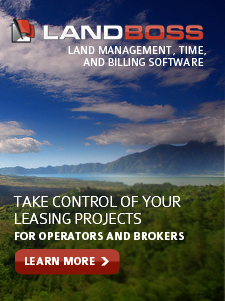If you are a landman looking to advance your professional credentials, the most logical solution is to become certified. The American Association of Petroleum Landmen is the official certifying organization for the landman industry and offers three different levels of professional landman certification:
- Registered Landman (RL)
- Registered Professional Landman (RPL)
- Certified Professional Landman (CPL)
Each level has its own set of requirements and considerations, but achieving each can take you from run-of-the-mill landman to highly-desired professional. In order to shed some light on what it takes to become certified on each level, we will give a general overview of the requirements for each. By fulfilling these requirements, you will be well on your way to becoming certified and maybe a better landman job.
Types of Landman Certification
Registered Landman
A Registered Landman certification is the most basic form of professional landman certification by the AAPL. It marks the first step for a landman in furthering his or her education. The RL certification also denotes a landman’s general understanding of his or her job and the landman industry as a whole. Becoming an RL is the easiest out of the three certifications, with comparatively little experience or education required.
Registered Professional Landman
The Registered Professional Landman certification is the second level of professional landman certification offered by the AAPL. Becoming an RPL signifies a continued commitment to landman education as well as a high level of competency as a professional landman. An RPL certification requires a moderate amount of experience and education and is recommended for landmen who have been in the field at least four years.
Certified Professional Landman
The highest level of professional certification a landman can achieve with the AAPL is that of a Certified Professional Landman. A CPL certification recognizes a landman as an expert in the landman industry, as well as his or her commitment to extensive land management education. Becoming a CPL is the most intensive, requiring either significant experience or a considerable combination of experience and education.
Certification Requirements
Each level of certification has its own set of requirements and considerations, designed for landmen at different levels in their career. These certifications in a sense act as milestones for a landman in his or her career.
AAPL Membership
This is probably the easiest requirement to fulfill. For all certifications, the AAPL only requires you to have been a member for one year.
Experience
Each certification demands a different degree of experience. Becoming an RL is fairly easy, only requiring one year of landman job experience. Becoming an RPL, and to a greater extent a CPL, requires much more experience. The logic behind these requirements is that they ensure only those who are serious about their career as landman can achieve these levels of certification.
Education
Education is another key consideration in professional landman certifications. Becoming an RL does not require any education, due to its basic requirements. The RPL certification is the first to require multiple credit years of landman job experience. Possessing a four-year or an advanced degree is not strictly required, but it does count towards fulfilling your credit years, making the process much easier. In order to become a CPL, applicants must possess a four-year degree or higher. Additional education may also contribute to your credit hours.
The idea behind education requirements is to encourage landmen to continue their landman education throughout their career. Even attending landman seminars and independently continuing your landman education will help applicants during the application process and will also help them to network.
Sponsorship
Being experienced and educated are not the only important things to consider in obtaining professional landman certifications. The AAPL requires applicants to be sponsored. What this means is they want certified landmen to endorse your application. This ensures that only reputable landmen who perform their jobs well can apply. Becoming an RL requires sponsorship from only one RPL, while becoming an RPL or a CPL requires endorsement from three Certified Professional Landmen. Sponsors are to fill out a verification form to be submitted with your application.
Application Submission
Applicants will not get certified if they do not submit an application. Each application requires a $75 application fee.
Exam Completion
Each level of certification has its own exam that applicants must complete. To become an RL, applicants must complete and pass the RL take-home exam. To become an RPL, applicants must attend an RPL exam review session followed by an RPL exam course. They must pass the exam with a score of at least 70 on each section. CPL applicants must attend the Oil and Gas Land Review Seminar and pass the CPL exam with a score of at least 70 on each section.
Moving Forward
Now that you are familiar with the three levels of professional landman certification, you can select the one that best fits your experiences. Becoming certified is not just another way to beef up your resume; it shows your commitment to learning and development in the landman industry. Some landmen may be fortunate enough to stay in one job with one company, but in all likelihood most landmen will move on to jobs for several different companies throughout their career.
In order to prepare better for your next career move, it is vital to keep self-improvement in mind. That is why becoming certified is so valuable; it may be the difference in landing that next landman job. It could also help you keep your job if the industry hits a bust and your employer starts downsizing. At the very least, certification will help you to become a better landman. That in itself is worth the effort.
All requirements and information in this article are derived from the requirements listed on the American Association of Petroleum Landmen website.
For detailed information on certification requirements, visit the following requirement pages for each certification below:
Registered Landman Requirements
Registered Professional Landman Requirments
Certified Professional Landman Requirements

